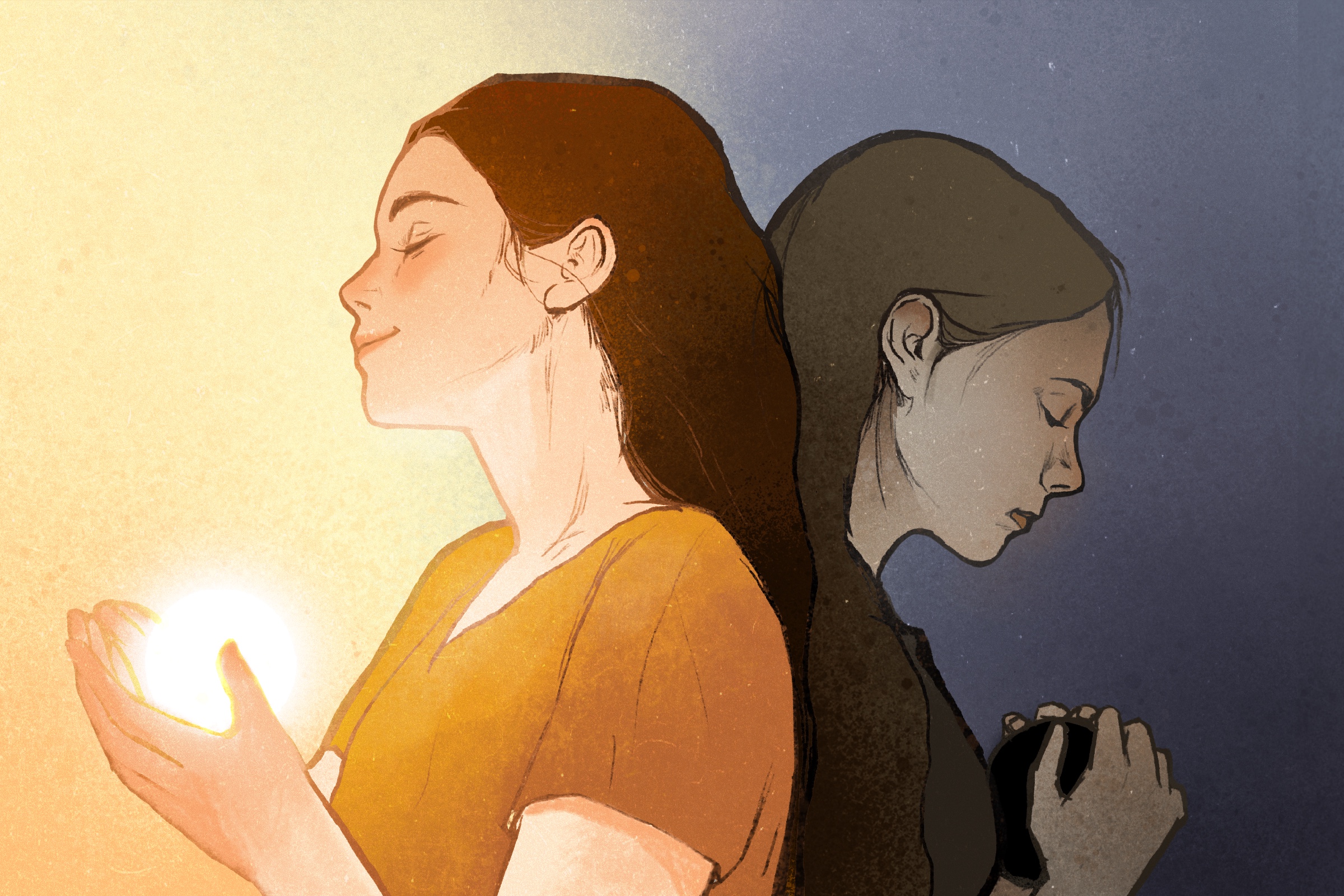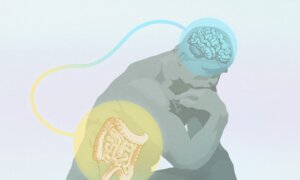A famous parable recounts the story of a little boy who had a bad temper. The father gave the boy a bag of nails and told him to hammer a nail into the backyard fence whenever he felt angry or resentful. The boy eagerly hammered away, and soon, the fence was riddled with nails. Eventually, the father asked him to remove the nails one by one. As the boy pulled them out, he noticed the holes left behind.
“These holes are like the scars left by your resentment,” the father said. “The anger and hurt may leave, but the scars remain.”
Resentment brands our hearts—not just emotionally but also physically. Fortunately, there is both a cure and a prevention.
The Toll of Resentment on Our Hearts
In a study led by Robert Enright, a pioneering forgiveness researcher and professor of educational psychology at the University of Wisconsin–Madison, 17 male cardiac patients were observed to measure the effect of resentment and forgiveness on their hearts.
Enright asked them to recall past injustices that they hadn’t forgiven. As they shared their stories, medical monitors revealed that the arteries carrying blood to their hearts began to constrict, reducing blood flow. This physical response mirrors the metaphorical “closing off” that happens when we hold onto grudges.
These findings suggest that reducing resentment can protect the heart, potentially reducing chest pains and even sudden death in cardiac patients, Enright told The Epoch Times.
Even healthy individuals prone to anger and hostility—defining features of resentment—have a 19 percent higher risk of coronary heart disease, according to a meta-analysis in the Journal of the American College of Cardiology. For those with preexisting heart conditions, this risk rises to 24 percent. A 2024 study corroborates this, showing that prolonged anger leads to blood vessel dysfunction.
Enright recalled the story of a woman in her 80s whom he met in hospice care. She had carried resentment toward a family member for more than 40 years because of an unresolved injustice.
“Think about that,” Enright said. “That’s not going to do much of anything toward the one who started the injustice.” Instead, the lingering bitterness drained her hope and diminished her joy in her final years, he said.
The Lingering Effect
Unlike a blaze of anger that flares and fades, resentment acts like a slow poison.
When treated unfairly, we instinctively raise shields of indignation, believing that it protects us from further harm. In the short term, it can feel empowering. “It’s as though we tell ourselves, ‘You can’t treat me this way,’” Enright said.
But resentment overstays its welcome, becoming what he calls “an unhealthy guest in the human heart.”
The word’s origin—from the Old French “resentir,” meaning to “feel again” or to re-experience a strong feeling—illustrates one of resentment’s distinguishing features: rumination.
People with resentment tend to think about the unfair event repeatedly. Philosopher Amélie Rorty described resentment as “[feeding] itself on the past, chewing over painful memories of humiliations, insults and injuries, regurgitating them until their very bitterness acquires a savoury taste.”
Rumination permeates our bodies and triggers a chronic state of heightened stress. This stress leads to elevated cortisol and adrenaline levels that impair the immune system, making us more susceptible to illnesses.
Rumination can also lead to depression, intensified anger, aggressive behavior, and suicidal tendencies.
“Because resentment is [a] stuck emotion, it becomes a magnet for other resentments as it grows and festers,” Kerry Howells wrote in her book “Untangling You: How Can I Be Grateful When I Feel So Resentful?”
“Lying awake at night going over a current resentment often brings other, unrelated ones to mind.”
Dr. Ann Corson, an integrative medicine medical doctor who blends physical and emotional healing, explains that people with deep-seated resentment often struggle with dissatisfaction in various aspects of their lives—their jobs, relationships, and even their own bodies—forming a negative feedback loop that affects their health.
Over time, resentment transforms into a worldview. It convinces us to see people as adversaries and the world as fundamentally unjust. Sometimes, our resentment isn’t directed at a person but our circumstances. We question why we’ve been dealt certain hardships and can develop a deep sense of injustice about our lot in life.
It becomes part of who we are, and it’s difficult to discern—even for ourselves, Enright said.
It goes beyond an individual; resentment can ripple through families and communities.
“Resentment tends to be inherited,” Enright said. “It’s passed on from generation to generation if the parents express it and model it for their children.”
Breaking Free From Resentment
So how do we evict this unhealthy guest from our hearts?
According to Ryan Blackstock, a professor and clinical psychologist specializing in addiction treatment, to work on resentment, you must first understand it.
“Where did it come from? What was the situation?” he told The Epoch Times. “And maybe most importantly, what purpose is it serving now? All resentments serve a purpose.”
Enright presents a four-phase forgiveness process to manage resentment: the uncovering phase, the decision phase, the work phase, and the discovery phase.
In the uncovering phase, we aim to understand our feelings, acknowledge the hurt, and develop an awareness of how resentment has permeated our lives.
Enright shared the story of a woman who endured profound hurt from her father. She realized that her long-held resentment affected every aspect of her life—straining relationships, eroding self-esteem, and casting a shadow over her future. By confronting these emotions, she began to see how bitterness held her captive.
In the decision phase, she consciously chose to forgive—not to absolve her father of his actions, but to free herself from the chains of bitterness. She recognized that clinging to anger only prolonged her suffering.
Enright suggests that forgiveness is a “cure” to the disease of resentment. As the opposite of resentment, forgiveness is associated with reduced cholesterol ratios—key predictors of coronary artery disease. Further, people who practice forgiveness have lower blood pressure and better cardiac response to stress.
Beyond the decision to forgive, the work phase requires changing one’s perspective. The woman started to explore her father’s past, uncovering his hardships and traumas. Understanding his struggles didn’t justify his actions but softened the edges of her resentment. This newfound empathy allowed compassion to grow in her heart, which allowed her to “chip away at the resentment,” Enright said.
Finally, in the discovery phase, she began to find meaning in her suffering. In an act of grace, she chose to care for her dying father, even feeding him in his final days.
“Once her father passed, she said, ‘I’m very grateful that I did this because, after all, he is my father; if I had not forgiven [him], I would have mourning and hatred in my heart. Now it’s just mourning,’” Enright said.
In many cases like these, “forgiving can give you your life back,” he said.
According to Corson, when resentment is resolved, the mind, body, and spirit can begin to heal.
Harnessing Gratitude
While forgiveness can heal resentment, gratitude is the long-term prevention. As Howells, a gratitude researcher, explains, “gratitude and resentment live and breathe in the relationships in our lives.”
We often get stuck believing that we need favorable conditions to be grateful, but Howells suggests that gratitude doesn’t depend on perfect circumstances.
For the areas in our lives tainted with resentment, Howells suggests taking a step back and changing perspective. “If we loosen the hold of resentment, we are more likely to be able to find gratitude in areas that we haven’t been able to access before,” she told The Epoch Times.
By developing gratitude in other areas of our lives untouched by resentment, we can cultivate strength and fortitude to address the resentment proactively, according to Howells.
“Imagine your emotional and psychological energy as a pie chart,” Blackstock said. “There is only so much space in the pie.” As the number of resentments grows, there is less space for anything else, he said.
Cultivating gratitude can stop resentment from taking over the positive emotions in the pie.
“Gratitude finds its power as an action,” said Howells, who advocates making gratitude a daily habit. “Find just one or two things that we can be grateful for easily and grow these in our hearts by bringing them to our attention often, writing them down, saying thank you, [and] feeling them in our hearts.”
Choose a Legacy of Love, Not Resentment
“If you hold grudges, you can never get well,” Corson said.
Enright encourages people to consider what legacy they will leave behind.
He said there are two options: You can either pass down your anger, potentially creating a cycle of negativity for future generations, or you can leave behind the gift of love, instilling warmth and kindness in the hearts of your family.
--
Share Your Story: health@epochtimes.nyc
Have you experienced personal transformation or improved health through cultivating virtues? Please share your experience with us.














